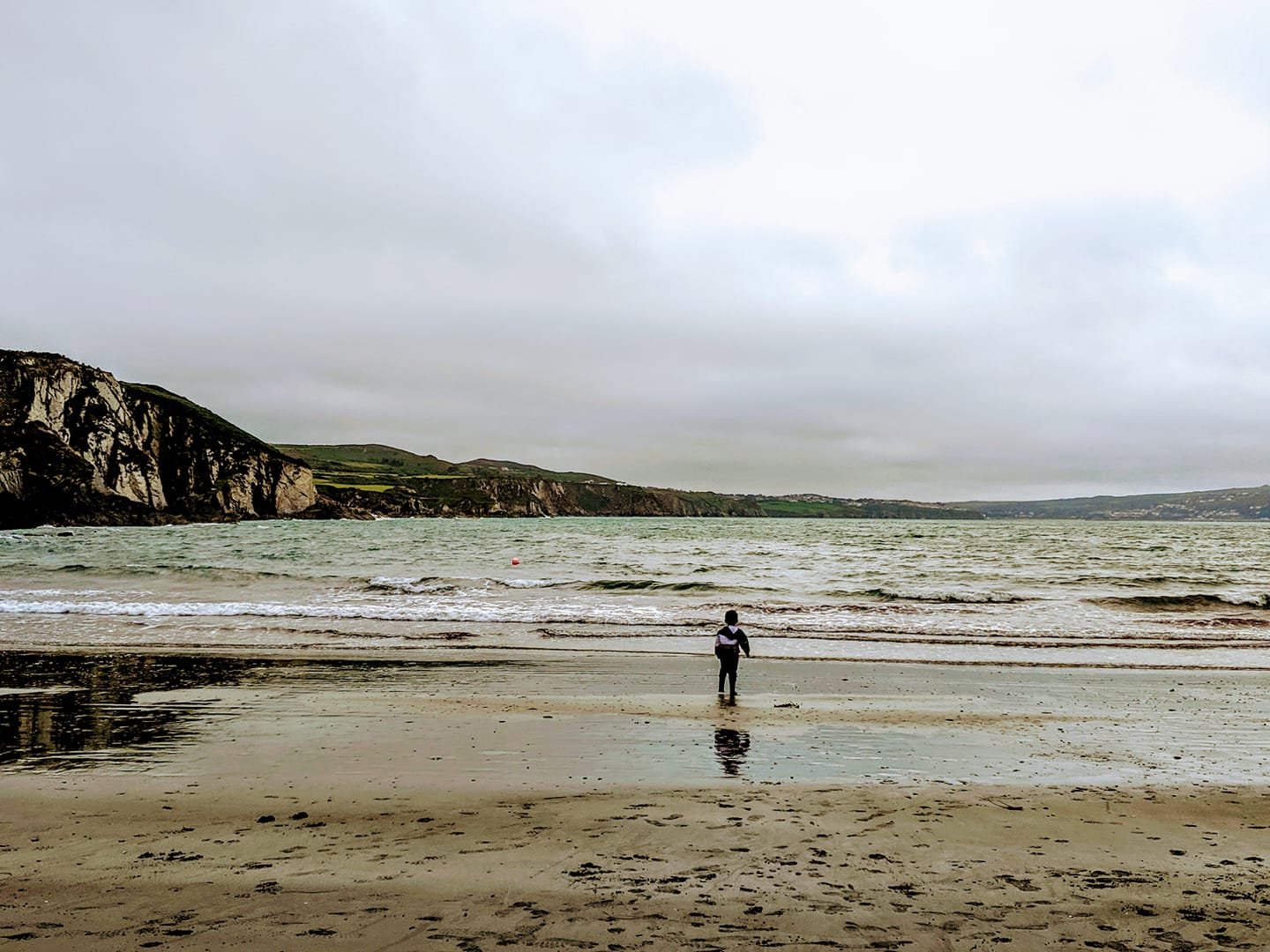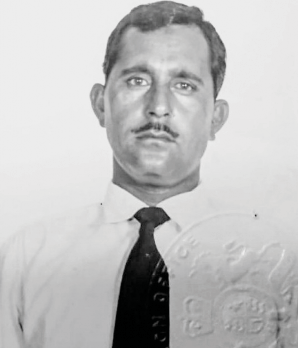My research is rooted in a constructivist approach that prioritises the narratives and experiences of marginalised communities.
I employ digital technologies as both a medium and a subject of study, seeking to tell the stories of these communities while also exploring how they utilise these tools in their daily lives. This dual focus allows me to not only give a platform to voices often unheard but also to comprehend their interactions with technology to better address their needs. Through this lens, I aim to construct a meaningful understanding that informs inclusive design and policy and, ultimately, enhances the way technology serves diverse populations.
Photography by El-Jarn
“The ink of the scholar is more sacred than the blood of the martyr”
- Muhammad Ibn Abdullah (pbuh)
-
El-Jarn, H. Art Director for Games Domain offline (2000 to 2002) Birmingham, Aston - 24 Printed Fanzine Magazines
El-Jarn, H., Southern, G. (2020) Can Co-Creation in Extended Reality Technologies facilitate the Design Process? Journal of Work Applied Management. Special Creative Edition. Emerald
Sutcliffe, A., Dunbar, R, El-Jarn, H. (2020) Does use of social media reflect the intimacy of personal relationships in the real world? Personal Relationships Journal. Taylor and Francis
El-Jarn H. Computer Mediated Communication, social networking sites & maintaining relationships Sutcliffe A.
El-Jarn H. Measuring Aesthetics, Usability and Memory on the Web Sutcliffe A.
-
El-Jarn, H. (2009) ‘Maintaining Relationships, Social Networking and Computer Mediated Technology’. The Manchester Business School Annual Postgraduate Conference. The University of Manchester. 15-18 October 2009
Sutcliffe, A., El-Jarn, H., Jahu, H., Binder, J. & Byat, A. (2010) ‘Use of Social Networking Technologies for Maintaining Social Relationships’. The Mitchell Centre for Social Network Analysis: 6th UK Social Networks Conference 14th – 16th April 2010. University of Manchester
El-Jarn, H. (2011). ‘Maintaining Long Distant Relationships through Social Networking’. Morgan Centre for the Study of Relationship and Personal Life. Proximities: Thinking about Relationality. 14-15 September 2011. University of Manchester
El-Jarn, H. (2018) ‘You have friends on different levels’. King’s CMCI Conference 2018 - ‘World In Flux’ – Kings College London. 22nd July 2018
El-Jarn, H. (2018) ‘The impact of CMC on the Pashtun Diaspora’. Digital Cultures: Knowledge / Culture / Technology Conference 2018. Leuphana University Lüneburg Germany
El-Jarn, H. (2022) ‘Visualising storytelling in social Media. UNIFEST / 14th May 2022 / Film Conference Indonesia
Practice-Based Research
“Dawn and the cool feel of the morning gently brushed my warm body, slumber disturbed by what seemed like a whirlwind of silent panic, everyone had vanished, just the disoriented memory of colourful ghostly cloth disappearing through my grandparents’ wooden doors…steam still curling up from their fresh tea, the wood fire still burning. My attention distracted by the disappearing colourful ghostly cloth floating out of the door, as if hypnotised by it.. beckoning me towards it.. in my Spiderman t-shirt and golden Aladdin pants I climbed down off the rope spun bed, the cold clay on the soles of my feet suddenly jolted me into panic and fear.. where have they all gone?.. they’ve left me?.. I ran out of the door, bare feet…in my red spiderman t-shirt and golden Aladdin pants.. running as fast as I could to catch the floating ghostly coloured cloths dancing in the morning dew… where were they taking me, I thought, as I began to run faster through twists and turns of clay housed confusion”
Project: Bare feet Pashtana
Bare Feet Pashtana is a project close to my heart, interweaving culture, personal narrative, and the magic of digital media. It springs from my experiences as a British-born girl who spent a year immersed in the vibrant tribal culture of the Afghan borderlands. The project is a tapestry of adventure, kinship, and the unspoiled curiosity of childhood, set against the stark beauty of mountainous landscapes.
Confronted with the narrow depictions of Afghan life in mainstream media, I am driven to share a truer narrative through my art, capturing the rich, multifaceted memories of my past. It's a venture that transcends personal reflection, inviting a chorus of voices to contribute their stories and craft a collage of artistic expression.
The ambition is to unite ten women, each with their own poignant stories shaped by conflict or upheaval, to express their views through art. Our combined efforts will honor International Women's Day with an exhibition, showcasing a spectrum from traditional media to innovative virtual reality—where my contribution will lie.
"Bare Feet Pashtana" is about giving life to diverse stories and forging a space for shared storytelling that reflects the complexity and richness of our collective experiences.
The Veiled Selfie Project
Abstract
This paper explores the performance of identity through the digital networks of women who wear the face veil (niqab). The ‘selfie’ is a self-portrait created for distribution to a wide audience on social media platforms, often promoting a sense of identity or self-presentation. This raises some interesting questions for women who wear the niqab. With their faces covered and identity blurred presenting their self-image, but is distorted by external agencies, whose perceptions about these niqabis are uncovered through disparaging notions, myths and cultural conditioning. The niqab denuded and embroiled in political discourse; Boris Johnson's comments of ‘letter boxes’ and bank robbers’ reinforcing the negative stereotypes and the general media viewing them as a homogeneous unidentifiable entity who conform to a culture that challenges western ideologies of freedom and feminism. Yet a different picture is emerging online where niqabis are using social media platforms to express, communicate and perform a sense of identity through their ‘selfies’ (Piela, 2013), whilst still maintaining the privacy of their face and observance of their religious and cultural identity.
This paper presents an exploration of the ‘veiled selfie’ as an expression of identity, considering the selfie as the performer on a stage where the niqabi frames themselves within a context with visual markers/props that offer a more complex and multifaceted narrative of a public identity. Data is sourced from Instagram and Facebook groups and analysed using the conceptual framework. Erving Goffman’s (1979) dramaturgical approach is adopted as a conceptual framework to explore the visual characteristics of the online selfie.
Capturing Echoes: Digital Archiving of the Pashtun Diaspora in the UK
STORIES OF THE ELDERS
Dedicated to Mr Saeed Ahmad - 1936 to 2021 UK resident since 1959.
Building upon a key chapter of my PhD research, this project delves into the rich tapestry of the Pashtun Diaspora. In my quest to understand the evolution of 'Digital Tribes' and their communication technologies, I have had the privilege of engaging with elders from this community, whose eagerness to share their stories has been as enlightening as it has been heartwarming. Being bilingual and fluent in the language opened a window for me to authentically capture their narratives, ensuring these precious oral histories are preserved rather than slipping into obscurity.
Utilising digital audio recordings complemented by evocative photography, I have begun the careful process of creating a digital archive that not only safeguards these personal histories but also invites exploration into the broader implications of digital archiving. So far, the stories of four participants—two men and two women, all between the ages of 75 and 85—have been meticulously recorded.
The project is based on strict ethical principles, and participants have kindly consented to the sharing of their photos and stories. This digital archive is more than a collection of memories; it is a testament to the enduring spirit of the Pashtun people and a beacon for future generations seeking to connect with their heritage.
Captured: 1 hour audio footage 1953: While working for the British Royal Air Force Base in the Maldives
Captured: 2 hour audio footage 1972 - 1987: Loss of right hand, the skinheads of Sussex and life after disability
Captured: 1.5 hour audio footage 1939 - 1948: Childhood memories of family, loss and love









